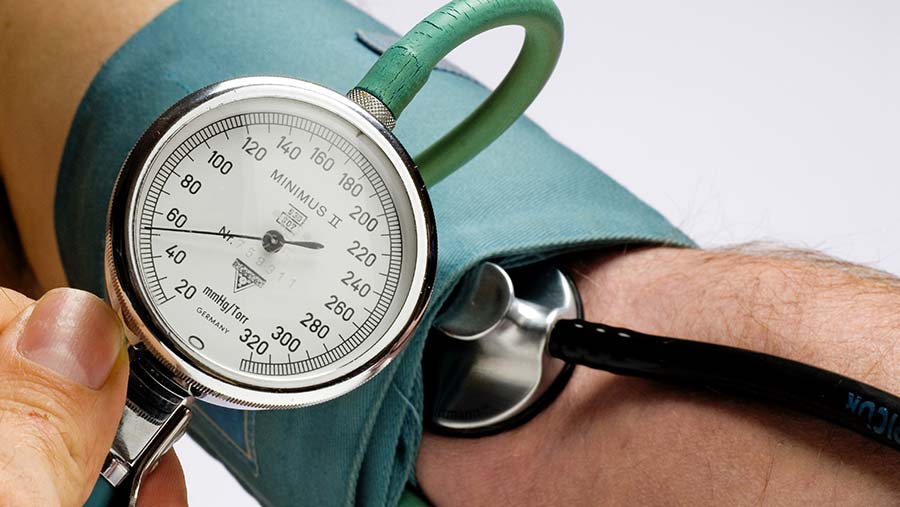Campaign to save farmers’ health screening service
 © imageBROKER /REX/Shutterstock
© imageBROKER /REX/Shutterstock An £8,000 appeal has been launched to save a health screening clinic for farmers at a Nottinghamshire livestock mart.
Nottinghamshire Rural Support launched the appeal after the NHS withdrew funding for the clinic at Newark livestock market.
The nurse-led drop-in centre has been part of the market for the past seven years – helping hundreds of farmers and rural workers.
See also: Where farmers in need can find help
Farmers visiting the market can also access the clinic for checks on blood pressure, blood sugar, cholesterol and mental health issues.
Other services include wound care, cancer screening and advice on general health concerns.
The service is run by charities Nottinghamshire Rural Support and Lincolnshire Rural Support Network with support from the NHS.
‘Great disappointment’
It was set up to help the farming community in Nottinghamshire, Lincolnshire and beyond at a time of growing financial pressures in the industry.
Nottinghamshire Rural Support said it hoped to raise £8,000 annually to cover its share of funding a state-registered nurse at the clinic.
NRS chairman and local farmer Peter Geldart said the loss of NHS funding was a great disappointment, but the clinics offered excellent value for money.
“We understand that these are difficult times for the NHS and that all spending has to be looked at carefully,” he said.
“However, we believe there was a very good argument for continued funding.”
Early warning system
A consultation with a nurse at the market costs an average of £31 per visit compared with £66 for a doctor and £42 for a district nurse, said Mr Geldart.
“In addition, the clinics reach people who might otherwise be reluctant or unable to take time off work to see their GPs, especially if the issue involves depression or mental health.”
Mr Geldart said early detection and treatment was often cheaper in the long run for the NHS.
“We think the clinics have acted as a kind of ‘early-warning system’ for health problems within the rural community.”
Half the farmers using the service are from Nottinghamshire and about one-third from Lincolnshire, with the rest from Leicestershire, Derbyshire, Norfolk and Northamptonshire.
